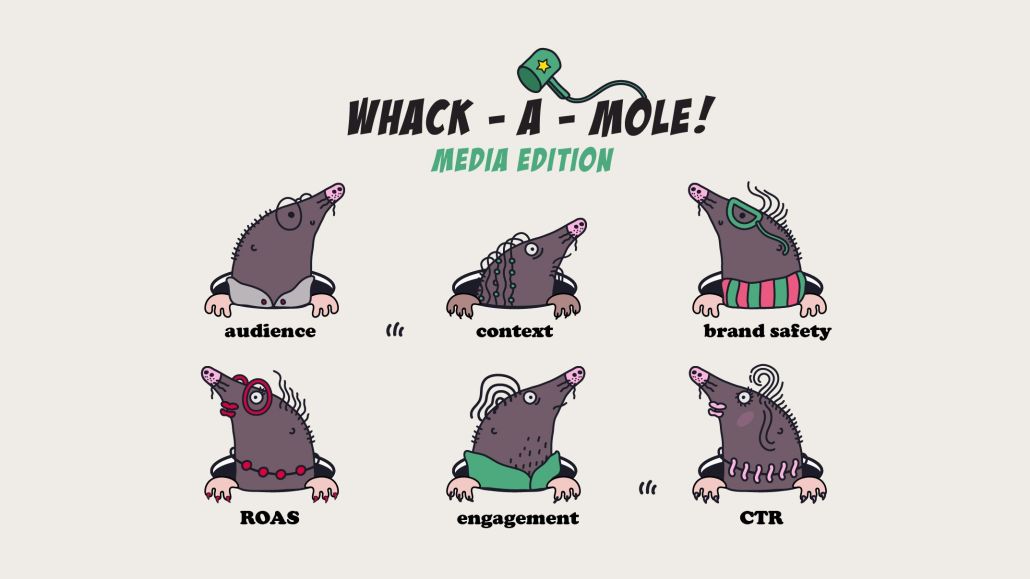Secure your place at the Digiday Media Buying Summit in Nashville, March 2-4
Case Study: How Trusted Media Brands is prioritizing video after acquiring a viral digital content company

One might not expect Trusted Media Brands (TMB) — with titles including Taste of Home, Reader’s Digest and Family Handyman — to find value in a company that spots viral videos online.
But finding that unique balance with Jukin Media gave executives at TMB the courage to acquire the company earlier this year in an all-cash deal.
“We [had been] looking for an acquisition to push our growth even farther,” said Bonnie Kintzer, CEO of Trusted Media Brands at Digiday’s Publishing Summit (DPS), who added that the company had been looking for several years.
TMB’s Mission: Grow its audience with a brand acquisition
On the surface, the pair might appear different. But Kintzer refutes that assumption, pointing to the companies’ joint focus on “the consumer.”
Both companies also have focused on user-generated content: Jukin with its video content and TMB’s titles with jokes from Reader’s Digest readers and recipes from its Taste of Home fan base. “There really is a commonality. Even the things we don’t have in common are super important,” Kintzer said, noting Jukin’s strength in social video and streaming and TMB’s ability to build out its owned-and-operated sites.
“We look at the differences and see tremendous amount of opportunity,” she said.
The expanded portfolio is focused on OTT and social moving forward, Kintzer said, teasing an expansion of TMB brands into OTT spaces. The brands will also collectively work together on expanding their content acquisition, which will give the brands some editorial cohesiveness — and power — operating as one unit.
TMB will also have access to Jukin Media’s library of over 70,000 videos, some of which will be deployed across brands.
Kintzer said TMB is coming off its own successful year with “multiple growth” channels, growing both its books business and digital advertising, as well as 70% growth year over year in affiliate revenue. “We really saw a lot of different areas working,” she said.
Jukin Media, as Kintzer admitted, is “younger” than the TMB audience. However, both have a sizable millennial audience — TMB’s is 33% millennials. While she didn’t share exact figures, Kintzer also noted that Jukin has “tremendous reach” among the Gen Z cohort.
Kintzer said she expects these audiences will continue to grow as the teams create content that will interest their evolving lifestyles: for example, as more of them cook, Taste of Home can serve them up recipes, just as Family Handyman can help guide them as they take on DIY projects.
Find brands that can complement — and push one another. As TMB continues to build its first-party data strategy, as another example, Jukin’s reach will come into play. Those 240 million viewers, in other words, will be crucial data insights for the brands.
“You have so much of it en masse to say ‘here’s what the market wants to see.’ That’s very valuable,” Kintzer said. Jukin will provide aggregated data, while personalized experiences will be shared with the brand from TMB’s portfolio.
Certain brand websites — including Jukin’s FailArmy — will be relaunched, capitalizing on the data insights gleaned from Jukin’s reach, among other findings TMB has in its back pocket. The company’s strategy on commerce will also be applied among FailArmy and its pet-focused brand, Pet Collective.
As an example, Kintzer shared how she found interest in a viral video of a cat funnily drinking water. Alongside that video could be a piece of content that explains why cats drink water that way.
“Having that companion content will be really strong,” Kintzer said.
More in Media

Media Briefing: Turning scraped content into paid assets — Amazon and Microsoft build AI marketplaces
Amazon plans an AI content marketplace to join Microsoft’s efforts and pay publishers — but it relies on AI com stop scraping for free.

Overheard at the Digiday AI Marketing Strategies event
Marketers, brands, and tech companies chat in-person at Digiday’s AI Marketing Strategies event about internal friction, how best to use AI tools, and more.

Digiday+ Research: Dow Jones, Business Insider and other publishers on AI-driven search
This report explores how publishers are navigating search as AI reshapes how people access information and how publishers monetize content.








